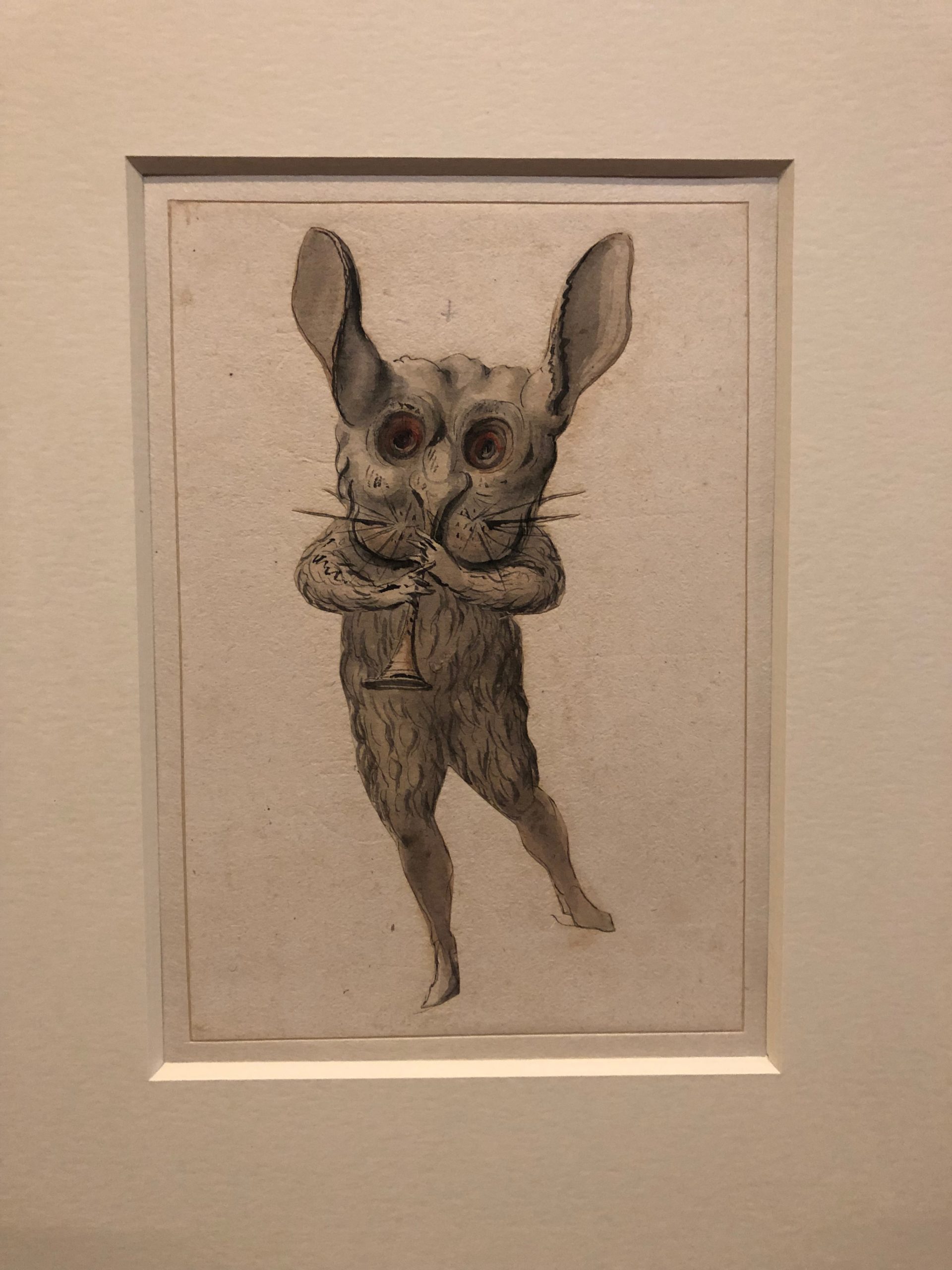The life-changing magic of just stopping (sometimes)
Hello, friend.
I like to set intentions for the year with what I do on New Year's Day. This year, I did a dance class and started work on a new first draft of a novel. I don't know yet if it'll go anywhere, but it felt incredibly affirming to listen to the little what-ifs that surfaced in my brain and just start typing. I think that's the biggest gift I've gotten creatively in the last couple of years: the freedom to pour myself into new ideas and the connected freedom to walk away. Writing 20,000 words on something and realizing I don't want to see it to the end isn't a defeat, because it's wonderful to realize this isn't an all-the-way idea before investing any more energy than is needed. I suppose that's my philosophy of relationships too: the end of a relationship isn't the worst thing. Wasting time is, and people being hurt when they didn't have to be, and contorting yourself into unnatural shapes to try to keep something alive that shouldn't be sustained. Walking away from creative projects is amazing in the way of realizing anything isn't working. Congratulations: you're free.

I did the London Writers' Hour 100-Day challenge for the last, oh, 100 days of last year. I centered my project around revision and completed second drafts of two book-length stories. The first one felt more difficult because it required more cutting, restructuring, changes of timeline, flashbacks, and other backflips of writing that I'm still wrapping my head around. However, it was the second one that felt like weights around the ankles. I enjoyed revising it; it's a story I have a great affection for, so it felt like hanging out with people I like, which is something I don't get enough of these days. I dutifully went through my post-its, I looked severely at every scene for parts to omit, I revised and refined relationships and arcs.
And I realized going further with it isn't how I want to use my time right now.
What?
It's one of three books I've thought of as a trilogy, filled with shared characters and settings. I'm not declaring this one dead forever; I might revive it someday, or parts might be cannibalized for other things. But at the moment, I don't feel like I have enough to say about complicated male friendships or northerners going to the South and feeling confused and alienated as I need to for a book-length project. I might someday! Getting to travel freely and safely in the US again will open a lot of possibilities. For now, though, this isn't where my attention needs to be. I want to write a big, ambitious fantasy project. I want to feed a new set of vivid, stubborn, weird characters that I'll grow to adore.
I realized this maybe two weeks before the end of the year, and I wondered if I should set the project aside immediately, hundred days be damned. Ultimately, I decided to keep going. I had context that would allow edits to be easier then that would be expensive to regain later. Even if I was going to set it aside, I wanted it to be tidy and ready to pick back up, rather than having a bunch of gaps and tattered edges to figure out all over again.
In doing this, I realized how much I missed writing a first draft. Something I've figured out in the last nearly two years of fervent pandemic shut-in writing is that there are many kinds of writers, and one distinction is whether a person prefers that initial drafting or revision. Both are necessary, but a lot of writing education centers more around the former. Here's how you form character, here's how you find your point of view, here's what you need to know about perspective and tense and so many other things. All of this, of course, can and has to be applied to revision too. But most classes I've taken, unless they explicitly say REVISION in the title, have an innate focus on initial creation and getting things right. When you consider that my college education was a writing degree, you can see how I might have run with that. I've realized that most of what I did across my writing life, from the age of 12 until a couple of years go, was long, drawn-out, no-end-in-sight first drafting. Sometimes pleasurable, never enough for me, and never making it to the revision state.
There's nothing wrong with being one kind of writer or another. Every preference comes with its own conveniences and difficulties. I don't know anyone who's great at both (and, to be honest, I'm not inclined to meet them right now if they do exist). The key is knowing what your deal is and putting structure in place to help you through the parts that don't come naturally.
I've taken emotional sanctuary in my writing at different points in my life (1995, 2002, and 2020, among other years), and that can mean doing a lot of unhelpful rereading. I've come to think of it as turning over a smooth stone in my hands. That's fine, except I want to finish something someday. These are things I've added to my routine to shove myself forward when I just want to stare at a paragraph for the 400th time:
- I note at the end of every writing day what I want to do the next day, so I don't have to reread in depth to find my purpose again
- I've used LWH, among other things, to learn to just write when I sit down and to make use of an hour rather than a whole aimless evening
- Some kind of task tracking that lets me mark things off when done: post-its, lines to strikeout in a text file, whatever
These may not get it done for you, but they work well by manipulating my ambition and my love of marking things off a to-do list. There's a version of it out there for you too, if you want it.
Here are some things I've written or liked.
- PancakesCon 3: CLI Server Surveillance and Writing Your First Novel, with video to come. I did a conference talk in the middle of this month, different from any others I've ever done. Half had to be infosec, half about an interest of mine. Thus this is the first time I've spoken publicly about writing fiction. (I did a talk at GeekGirlCon in 2013 about zine making, but my zines are almost always nonfiction.) I had to write it in a week, and it completely consumed me in the way of anything so important to me. I most sincerely hope you like it.
- If I must be sad, I will be sad in Paris on Deviation Obligatoire. I'm still figuring out how to write about my trip to Europe in November and December. I started with the scariest and most time-sensitive thing, and then I was left with a lot of memories of feelings and navigating a really different brain than I usually travel with. I decided I'm cool with being someone who's depressed while traveling, if the other option is doing nothing. (And now that I'm home, that is the only safe option once again, so I'm as grateful for the memories and pictures as I thought I'd be.)
- Matt Bell's Substack of writing exercises, which I am making my way through and adore. A lot of writing exercises seem to focus on poking your imagination and generating new things, and sometimes that's the most fun thing. Right now, though, exercises that make me see new sides of what I'm working on are really meaningful. These do that well.
- I Wrote an Essay on Sleep Paralysis to Finally Talk About Men’s Ugliest Urges, which warrants a content note for talk of sexual harassment and assault. It approaches it so skillfully and ruthlessly, though, that I hope this finds you on a day where you can read it, because it's remarkable.
- Rebecca Mix's Patreon has a lot of really wise, opinionated stuff about writing and being published, some about very recent events, some about things still happening. Warm, knowledgable, and worth the pledge.
And finally, a sentence I've written recently that I liked: When had she last let the growing sunlight paint her arms and face, to remind her she was more than a meat synapse between necessary actions?
 I saw this buddy at the Louvre as part of their On stage! Costume designs from the Edmond de Rothschild Collection exhibit. I like illustrations generally, but what I didn't expect was to feel a connection with often-unnamed artists from 400 years ago. In these drawings, I could feel the flourish and quiet laugh of someone working centuries ago. I get the same feeling when I see inky catprints on medieval manuscripts: oh right, we all breathe and laugh and work the same way, deep down. I felt seen and seeing. I can hope for nothing more at an art museum.
I saw this buddy at the Louvre as part of their On stage! Costume designs from the Edmond de Rothschild Collection exhibit. I like illustrations generally, but what I didn't expect was to feel a connection with often-unnamed artists from 400 years ago. In these drawings, I could feel the flourish and quiet laugh of someone working centuries ago. I get the same feeling when I see inky catprints on medieval manuscripts: oh right, we all breathe and laugh and work the same way, deep down. I felt seen and seeing. I can hope for nothing more at an art museum.